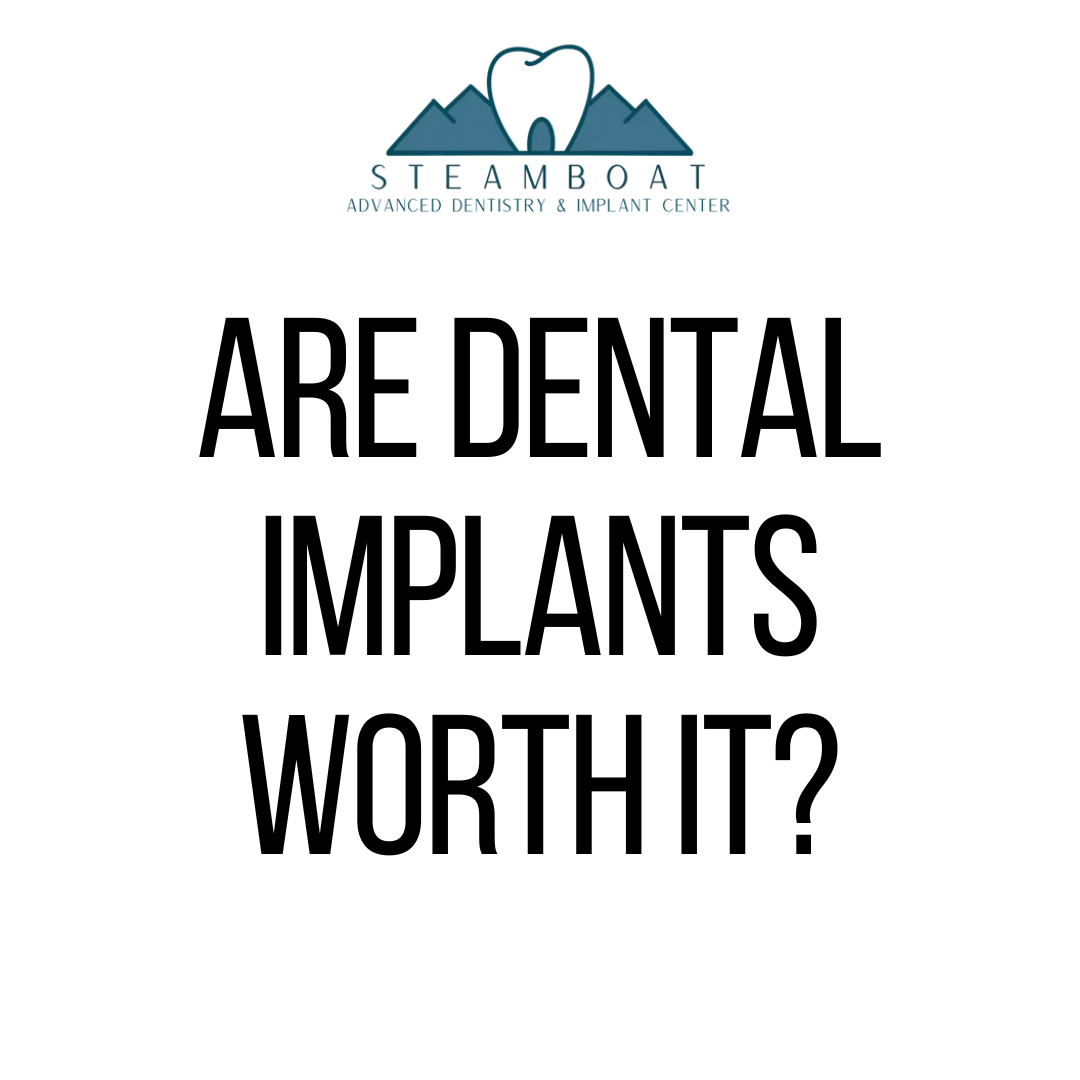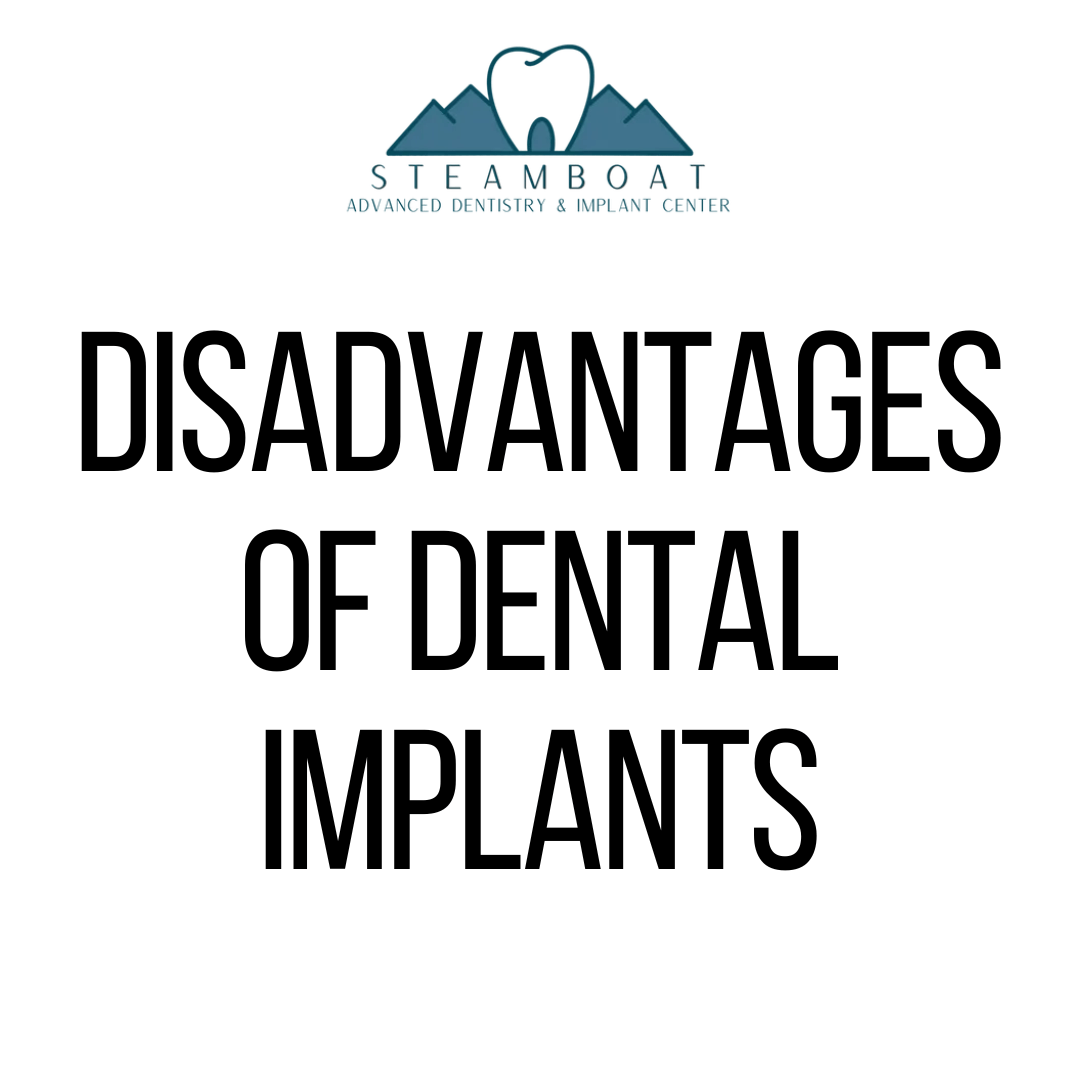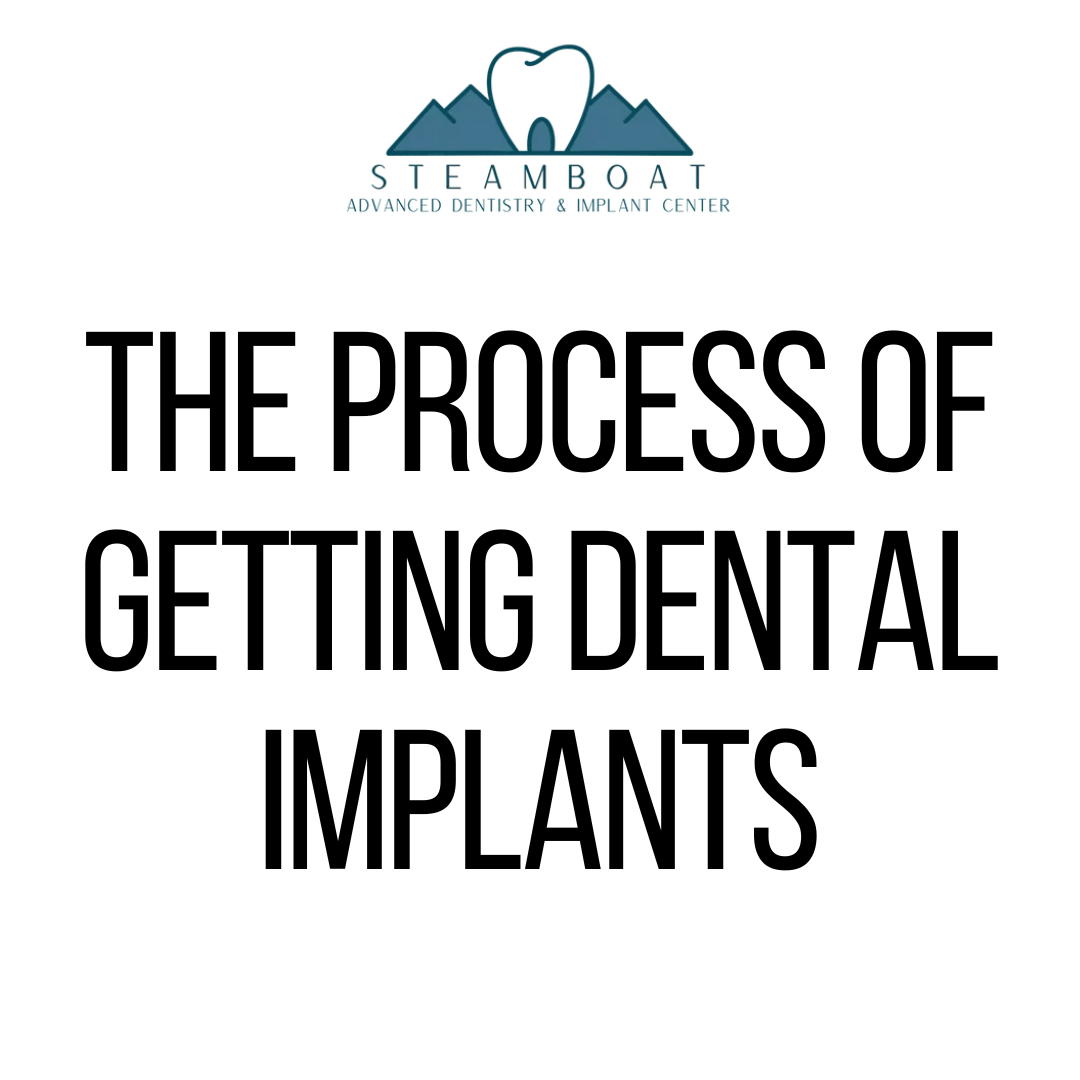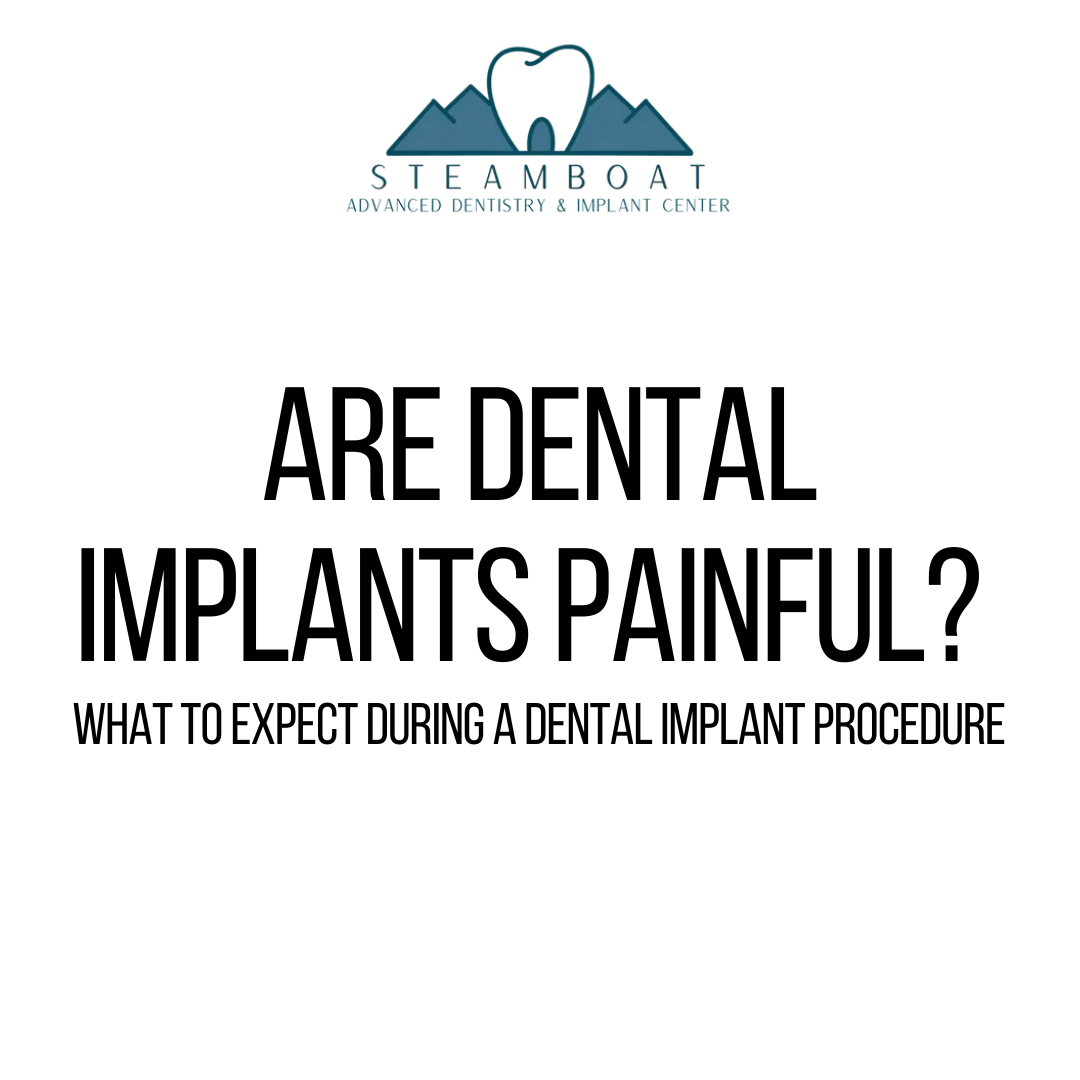The Pros and Cons of Dental Implants in Steamboat Springs, CO
Dental implants are considered a top of the line treatment for replacing missing teeth. But is it really the best or is it all hype? What are the pros and cons of dental implants? Dental implants are a big investment, so let’s go over what makes them great and what you should be aware of before deciding if they are right for you.
Dental implants are an amazing option, but they are not for everybody and you should be fully informed before making any decision about your health. If you are like me you want to know the worst first and then the good news. So let’s get started with the cons…..
Why do dental implants fail?
Statistically, the average dental implant failure rate is 5-10%. What causes a dental implant to fail?
Poor healing and disease are the two primary causes of implant failures. But the good news is the main reason for failure is peri-implantitis, which is just a fancy way of saying gum disease around an implant.
Everyone is susceptible to gum disease and the good news is, it’s completely preventable with good nutrition, homecare, and maintaining routine dental visits.
Another factor for failure is overall health condition and habits. For instance smoking slows healing, and this can prevent healing around the metal post placed into the bone. Diabetes is another common condition which impairs the body to heal. All this should be discussed with your practitioner to assess if dental implants make sense for you.
There are less common reasons for failure, such as poor placement, nerve damage, inferior dental materials, and allergic reactions. For the most successful outcome find a practitioner you trust who specializes in dental implants.
Cost of dental implants
The cost of dental implants is often more than other treatment options, like dentures or bridges. Dental implants can require more time and upfront cost, however over the course of your lifetime this may not be the case. Dental implants have a long life, which may save you both time and money over the course of your life.
Bridges on average last about 15 years. Dentures need readjustments as the shape of the mouth changes over the years, and likely will need repairs or replacements at some point in your life. If they do wear out, it would most likely only be the crown needing replacement, not the post below the gum.
Lastly, dental implant restorations are a more involved restoration option, and can take a bigger time commitment than some other dental restorations. Dental implants are surgically placed into the bone, just like the root of a real tooth and therefore need more healing time.
Time is typically given for the bone and gum around the implant to heal before the crown above the gum is placed. While you are waiting for healing a temporary is usually provided, until you are ready for the permanent crown. This can take several months before it is all completed.
A quick run down of the pros and cons of dental implants:
Pros of dental implants
- Look like real teeth
- Feel like real teeth
- Can last a lifetime, average life expectancy 25 years
- No special upkeep, treat just like a real tooth
Cons of dental implants
- 5-10% fail on average across the nation. This is typically preventable
- Expensive at first, but may save over your lifetime because of their strength and longevity
- More extensive, involves minor surgery, local anesthetic is typically sufficient for comfortable procedure
Conclusion
Implants are the best of the best for replacing missing teeth. Because they look and function like real teeth. Bridges and dentures have an unnatural feel and take time to get used to. The failure rate is exceptionally low with quality home care and maintaining routine dental check ups.
The initial cost may be higher, but their longevity and minimal issues may save you money over the course of your lifetime. For the best outcomes seek a practitioner specializing in dental implants to create a custom treatment plan to provide you with the best options for your individual needs.









